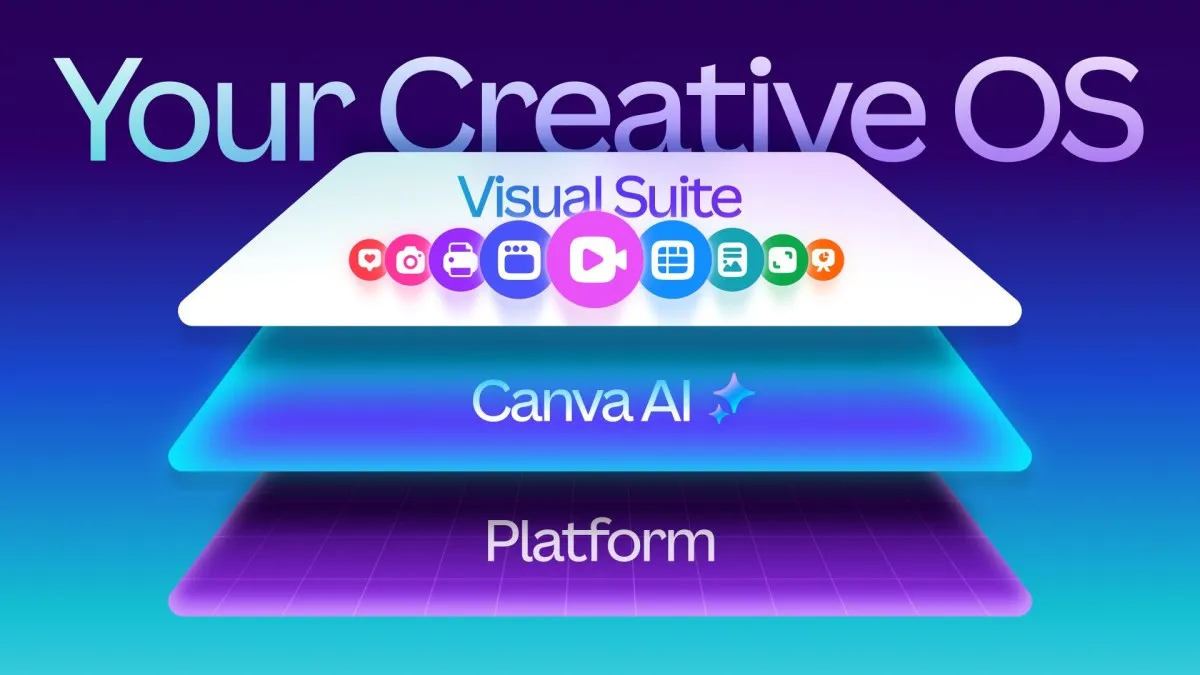
On Thursday, Canva, the renowned creative suite company, unveiled its groundbreaking design model, which is designed to comprehend various layers and formats. This new model aims to enhance the platform's functionality while introducing several exciting product forms and updates to its AI assistant. Additionally, Canva has integrated a coding tool for spreadsheets, enabling users to create widgets for generating repeatable insights.
Canva announced the launch of its own foundational model, specifically trained on its unique elements. This innovative model enables the generation of designs featuring editable layers and objects, contrasting with traditional flat images. The model's versatility allows it to work seamlessly across various formats, including social media posts, presentations, whiteboards, and websites. Robert Kawalsky, Canva’s global head of product, explained in a conversation with TechCrunch, “We started by creating flat images with diffusion models. Omni models have taken that a step further, allowing users to edit these images with sophistication. Yet, the existing tools often require you to prompt your way to the final result, which can be challenging in a visual medium.”
Kawalsky emphasized the importance of balancing the initial prompt with the ability to iterate directly, saying, “What we’ve found is that where people want to be is the ability to really marry this idea of starting with a prompt and getting far, but also being able to iterate directly themselves.”
Earlier this year, Canva introduced its AI assistant, now equipped with a chat-like interface that helps users generate new media items using prompts. This assistant is now accessible across multiple screens, including the design and elements tabs. Users can even mention the AI in comments to receive text or media suggestions while collaborating on projects. Moreover, the AI tool has advanced to generate 3D objects and replicate the art style of existing designs.
Canva has also made strides in integrating its spreadsheet product with its mini-app creation feature, allowing users to leverage stored data and create widgets effortlessly. Furthermore, the company acquired MagicBrief, an ad analytics firm, earlier this year. With this acquisition, Canva is launching a comprehensive marketing platform named Canva Grow, which utilizes AI for asset creation and analytics, enabling marketers to publish ads directly to platforms like Meta.
In addition to its AI innovations, the Australian design powerhouse has rolled out several new products and features. Users can now create forms within Canva, providing an alternative to traditional platforms like Google Forms for gathering various types of input from clients or users. The platform is also expanding its email design capabilities, allowing for the creation of templates and layouts that align with a brand's aesthetics for marketing or package tracking emails.
Last year, Canva acquired the professional design tool Affinity to better compete with industry giants like Adobe. In a move to enhance user accessibility, Canva announced that it will make the Affinity tool free forever. The company is also redesigning the Affinity interface to integrate vector, pixel, and layout functionalities into a single platform. This update facilitates a smoother workflow, enabling designers to create objects in Affinity and transfer them seamlessly to Canva. Furthermore, users can utilize Canva AI to generate images or designs within Affinity, further enhancing the creative possibilities.
With the launch of its new design model and an array of innovative features, Canva is solidifying its position as a leader in the creative design space. By focusing on AI integration and user-friendly functionality, Canva continues to empower users to create stunning designs across various formats with ease.